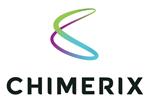Chimerix Presents Results from Post-hoc Analysis of Phase 3 Study
Decreased HHV-6 Reactivation Observed Among Oral Brincidofovir Allogeneic Hematopoietic Cell Transplantation Recipients
Results to be Presented at Transplantation and Cellular Therapy Meetings of ASBMT and CIBMTR 2019
“HHV-6 is a common viral infection and is a significant concern in transplant patients, particularly in cord blood and other high-risk transplant recipients. These types of transplant are associated with higher rates of HHV-6 reactivation following transplant. Because these patients are immunocompromised, the virus can lead to a number of life-threatening complications, including HHV-6-associated encephalitis—or inflammation of the brain—which can be deadly or result in permanent neurological disability,” said
The post-hoc analysis examined data from 92 patients treated with BCV and 61 patients treated with placebo (PBO) who did not have HHV-6 viremia in the SUPPRESS clinical trial, a randomized, double-blind, PBO-controlled trial of 452 patients evaluating oral BCV for cytomegalovirus (CMV) prophylaxis following allo-HCT. Subjects for this analysis were included if they received at least six doses of BCV or PBO within the first three weeks of the trial. Plasma samples from the first six weeks post-transplant were tested for HHV-6, and levels were compared between subjects who received BCV and those who received PBO. Results included the following:
- BCV reduced the incidence and severity of HHV-6 viremia in allo-HCT recipients
- The cumulative incidence of HHV-6 viremia was significantly lower in subjects receiving BCV; 15 percent of BCV subjects versus 31 percent of PBO subjects had detectable HHV-6 viremia within six weeks after allo-HCT
- Two subjects (2 percent) in the BCV group had HHV-6 viremia >1000 copies/mL compared to 7 subjects (11 percent) in the PBO group
- Both rash (9 percent of BCV recipients versus 26 percent of PBO recipients) and HHV-6 encephalitis (1 case on PBO, none on BCV) were less common in subjects receiving BCV; both of these events are known to be associated with HHV-6 reactivation
These results support further investigation of BCV as preventative treatment to reduce the incidence and severity of dsDNA viruses, including HHV-6, following allo-HCT.
About Brincidofovir
About HHV-6
Human herpesvirus 6 (HHV-6) infects most children within the first three years of life and, like other herpesviruses, establishes latency after primary infection.1 HHV-6 commonly reactivates in immunocompromised patients, and 30 to 70 percent of patients undergoing allo-HCT may reactivate after transplant.2-6 Some of these patients may go on to develop HHV-6-associated encephalitis, or inflammation of the brain, which can result in permanent neurological disability or even death. Most cases of encephalitis are believed to represent reactivation of latent infection, since primary infection in adults is rare.7
About
Forward-Looking Statements
This press release includes forward-looking statements within the meaning of the Private Securities Litigation Reform Act of 1995 that are subject to risks, uncertainties and other factors, including the possibility our current or future clinical trials of brincidofovir may not be successful, that
____________
1 Tremblay C, Thorner AR. Clinical manifestations, diagnosis and treatment of human herpesvirus-6 infection in adults. UpToDate. Retrieved from http://www.uptodate.com/home/index.html.
2 Ljungman P, Wang FZ, Clark DA, et al. High levels of human herpesvirus 6 DNA in peripheral blood leucocytes are correlated to platelet engraftment and disease in allogeneic stem cell transplant patients. Br J Haematol 2000; 111:774.
3 Yoshikawa T, Asano Y, Ihira M, et al. Human herpesvirus 6 viremia in bone marrow transplant recipients: clinical features and risk factors. J Infect Dis 2002; 185:847.
4 Zerr DM, Corey L, Kim HW, et al. Clinical outcomes of human herpesvirus 6 reactivation after hematopoietic stem cell transplantation. Clin Infect Dis 2005; 40:932.
5 Hentrich M, Oruzio D, Jäger G, et al. Impact of human herpesvirus-6 after haematopoietic stem cell transplantation. Br J Haematol 2005; 128:66.
6 Ogata M, Satou T, Kadota J, et al. Human herpesvirus 6 (HHV-6) reactivation and HHV-6 encephalitis after allogeneic hematopoietic cell transplantation: a multicenter, prospective study. Clin Infect Dis 2013; 57:671.
7 Whitley RJ, Lakeman FD. Human herpesvirus 6 infection of the central nervous system: is it just a case of mistaken association? Clin Infect Dis 2005; 40:894.
CONTACT:
Investor Relations:
ir@chimerix.com
(919) 972-7115
or
Will O’Connor
Stern Investor Relations, Inc.
will@sternir.com
(212) 362-1200
Media:
Becky Vonsiatsky
bvonsiatsky@w2ogroup.com
413-478-2003
Source: Chimerix, Inc.



